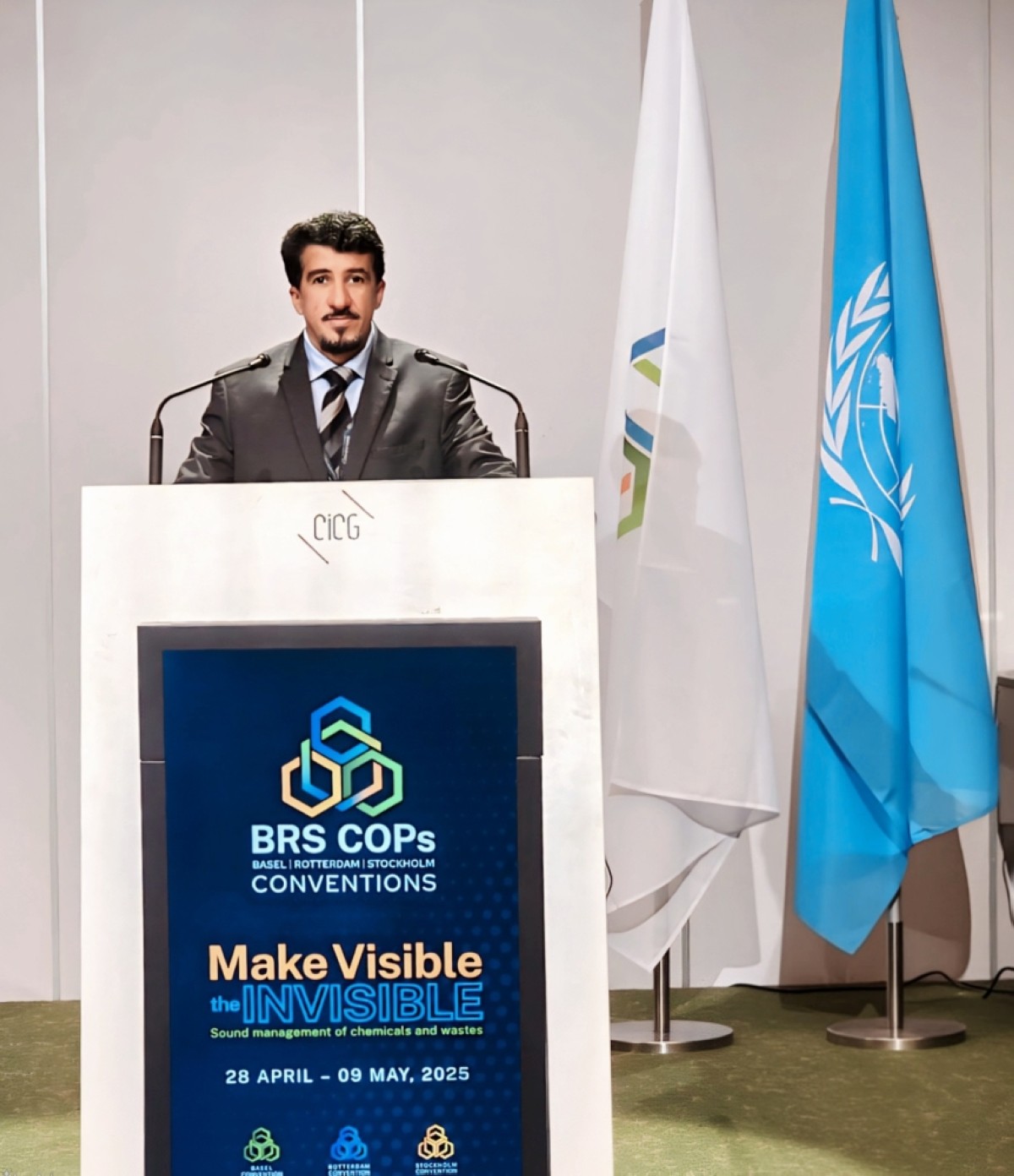KUWAIT: The Kuwait Institute for Scientific Research (KISR) affirmed on Saturday that hosting the Stockholm Convention Regional Center for Training and Technology Transfer for West Asia underscores Kuwait’s prominent role in advancing global environmental efforts. The regional center positions Kuwait as a leading hub in managing chemical risks and hazardous waste in the West Asia region, said Dr. Mohammad Al-Otaibi, Coordinator of the center and scientific researcher at KISR.
Speaking to the Kuwait News Agency (KUNA), Dr Al-Otaibi explained that the center offers technical assistance and specialized training services to countries across West Asia, serving as a link between regional states and international environmental agreements — particularly the Stockholm Convention. “The center supports member states by providing technical expertise, facilitating the transfer of clean technologies, disseminating updated information, and assisting in the execution of national action plans and country reports,” he noted.
Since its inception, the center has organized multiple training workshops for regional experts. Dr Al-Otaibi revealed that preparations are underway for a major workshop scheduled for October 2025 at KISR’s headquarters. The event will draw participation from Gulf Cooperation Council (GCC) states, West Asian nations, and international experts, with a focus on emerging hazardous chemicals, including PFAS, UVA328 and PCBs. The workshop will cover evaluation methods, risk assessment and national reporting mechanisms.
Dr Al-Otaibi added that, in collaboration with Kuwait’s Environment Public Authority (EPA), the center recently completed an updated survey of banned chemicals in Kuwait. A comprehensive report was submitted to the convention secretariat, and the center is currently working on compiling an inventory of newly listed substances to meet obligations set by the member states. Outlining the center’s 2024–2027 work plan, Dr Al-Otaibi said it comprises key areas: regional training workshops, national research projects, updates to national implementation plans, development of a regional chemicals database, assessment of newly listed substances, enhanced regional coordination, and submission of periodic progress reports.
He emphasized that strategic cooperation with international bodies such as the United Nations Environment Programme (UNEP) and the Global Environment Facility (GEF) has strengthened the center’s capacity, enabled effective technology transfer and broadened its regional reach. This, he said, supports Kuwait’s environmental commitments while building national expertise. KISR’s participation in the joint Conferences of the Parties (COP) to the Basel, Rotterdam, and Stockholm Conventions — held in Geneva from April 28 to May 9, 2025 — allowed Kuwait to showcase its achievements and contribute to major international decisions.
These included the inclusion of new hazardous chemicals under the conventions, revisions to technical guidelines, and the launch of collaborative compliance programs. Dr Al-Otaibi highlighted the center’s strategic significance to Kuwait, not only as a scientific and training institution but also as a crucial mechanism for protecting public health and preserving environmental integrity. He credited the support of national leadership and coordination with local agencies for enabling the center to fulfill its mandate effectively.
“The center plays a vital role in building national capacity, offering environmentally sound alternatives to prohibited substances, and reducing the economic burden of environmental degradation,” he said, adding that these contributions bolster Kuwait’s sustainable development goals. Kuwait ratified the Stockholm Convention in March 2006, and in 2009, the Fourth Conference of the Parties in Geneva officially approved KISR as the headquarters of the Stockholm Convention Regional Center for West Asia. Since launching its activities in 2011, the center has emerged as a cornerstone of regional environmental cooperation and policy implementation. — KUNA


















